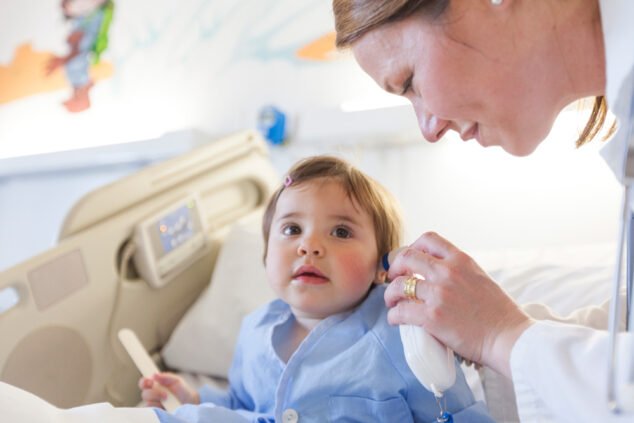Respiratory viruses have increased more than 25% in children, not counting those positive by Covid, compared to the cases detected in the autumn-winter of 2020-2021, a year ago. This is stated by Dr. Pepe Mut, head of Pediatrics at the Denia Hospital, who explains that a "considerable increase has been detected in pediatric consultations due to viral symptoms that were not seen last fall." And with him the specialists consulted from the different centers of the Ribera health group coincide.
For Gonzalo Ros, head of Pediatrics at the Vinalopó University Hospital, "we are having the usual cases of 2018-2019, with 1-2 hospitalizations for bronchiolitis due to RSV per week for about two months." "Fever is the most common reason for consultation," adds Roberto Díaz, a childcare doctor at the Ribera Polusa hospital, who explains that the origin is usually a viral process. In addition to the fever, he explains, other symptoms “that may make parents suspect an upper respiratory infection, such as coughing, sneezing, pain when swallowing (odynophagia) or ear pain (otalgia), sometimes accompanied by nasal congestion".
The head of Pediatrics at Ribera Hospital de Molina, Dr. Pío Dollera, explains that the most recurrent profiles of pediatric patients are infants aged 3 to 18 months due to cases of bronchiolitis and preschool and school children with “catarrhal symptoms of the upper tract and bronchial processes, especially in cases with a history of asthma, defined more as intrinsic asthma, or in minors with symptoms of bronchial hyperresponsiveness ”.
Both Dr. Dolera, Dr. Mut, and Dr. Díaz add that "a high percentage of acute gastroenteritis pictures are coming for consultation, with a fairly defined pattern of fever at 48-72 hours, and which is generally associated with vomiting and bowel movements. diarrhea with an average evolution of 4-6 days ”, as explained by Dr. Dolera. Dr. Díaz adds that "the prevalence this autumn-winter with respect to the intestinal virus has been increasing compared to other autumn-winter, leading to vomiting, diarrhea and abdominal pain."
The professionals of the different health centers of the Ribera group explain that the symptoms that should guide parents to go urgently to a specialist or to the Hospital Emergencies are, according to Dr. Mut, in general, a persistent feverish picture of more than 2 - 3 days, without apparent cause, general malaise when the fever drops and respiratory distress or inability to feed. Dr. Díaz adds those cases in which the fever that does not subside with the usual treatment, intense vomiting occurs with liquid stools (with and without blood strings), there is an outright refusal or inability to drink liquids, or when it is detected apathy or a drowsy state in the child.
According to Dr. Díaz, "children must stay at home, without going to school or nurseries while the fever persists or there is a diagnosis of an infectious or viral process that needs to be isolated, to avoid spread." For Doctor Mut, the child must be asymptomatic at home for at least 24 hours, to avoid contagion.








